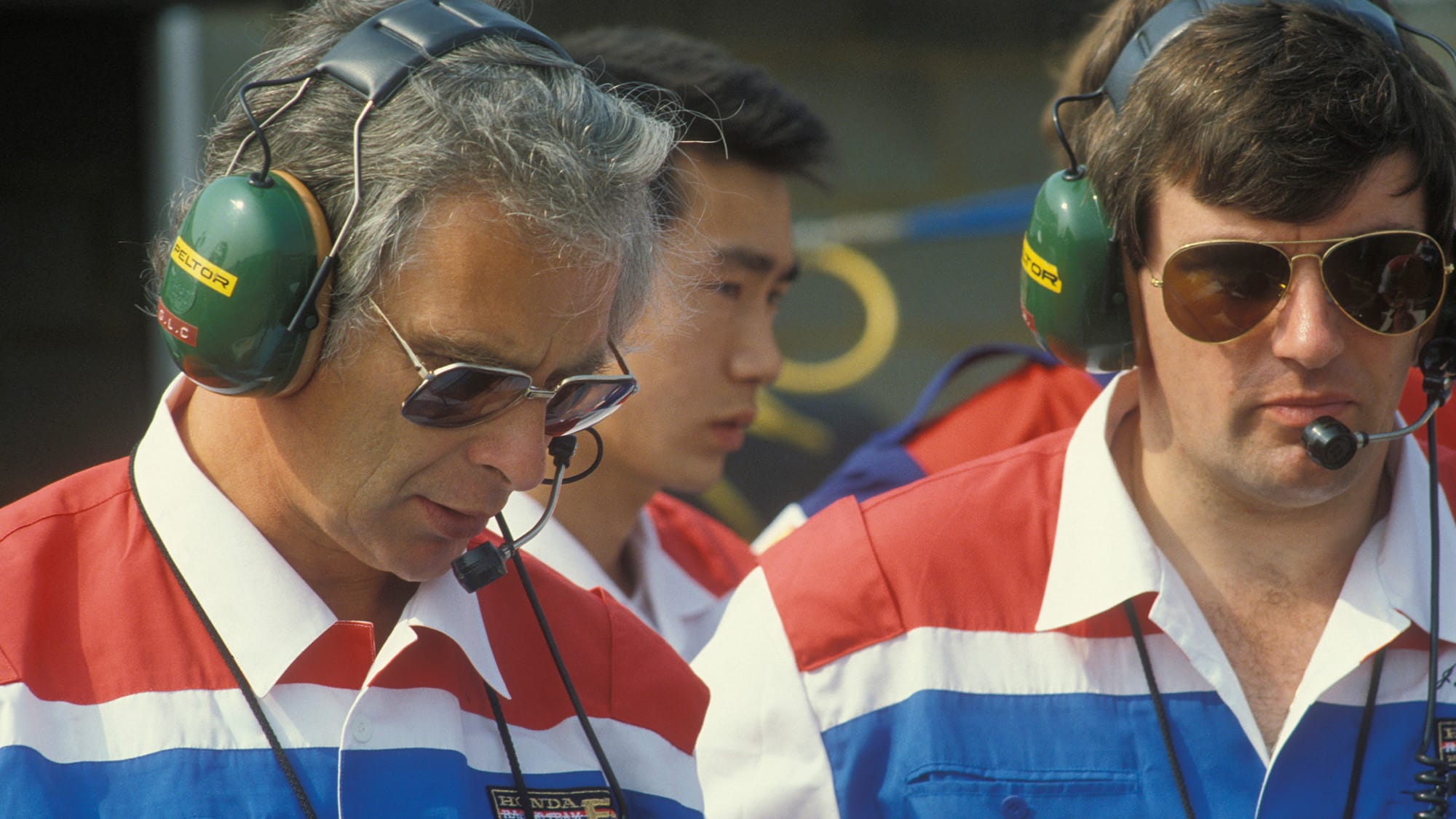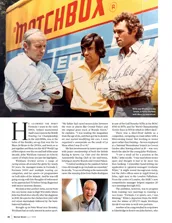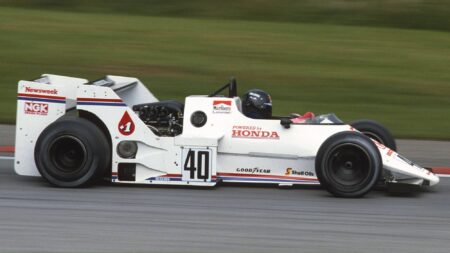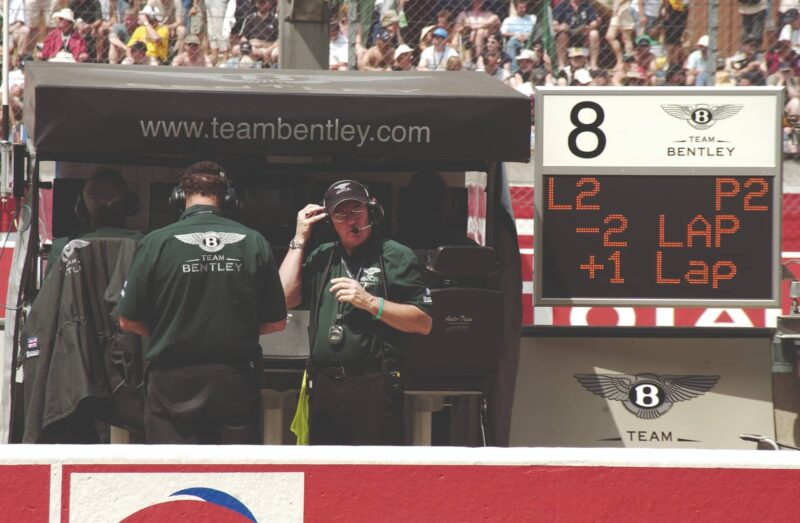Stefan Johansson, the quicker but less fortunate of the two Spirit F2 pilots when it came to reliability in ’82, was the driver of the test hack in ’83: the first car was built around a F2 monocoque, the second on a beefed up tub with increased fuel capacity to allow it to go a full GP distance.
Johansson would subsequently drive for the Footwork F1 team in 1991 when Wickham was running the show. A decade later he brought his former boss in to run the Johansson-Matthews Racing squad competing with a pair of Reynard prototypes in the American Le Mans Series and at Le Mans.
Wickham was an “unflappable, totally calm and probably the most organised person I’ve met in my life”, recalls the former Ferrari and McLaren F1 driver and Le Mans winner. “John was a brilliant team manager, just so organised.
“People at my team would often say, ‘but what does he do?, there isn’t a single piece of paper on his desk’. There didn’t need to be, because he was on top of everything.
“As the team owner, I’d sometimes ring him before a race in a flap and say, ‘what about this?’ or ‘what about that?’. His reply was always the same: ‘It’s done!’”

Wickham picked Bentley Le Mans win as his career highlight during 2020 Motor Sport interview
Jakob Ebrey
Wickham was for the most part a man of few words, and certainly never one to shout and scream. He could come across as dour and gruff, partly because he was so quietly-spoken.
Yet underneath a sometimes cold exterior there was a keen sense of humour. And, it should be added, a deep love of motorsport, and a knowledge and understanding of its history and traditions. First and foremost, Wickham was a motor sport fan.
“I loved working with John not just because he was so good at his job, but because he was a great person to be around,” continues Johnasson. “Yeah, he didn’t say a lot sometimes, but he did have a nice sense of humour. Just a top guy.”






